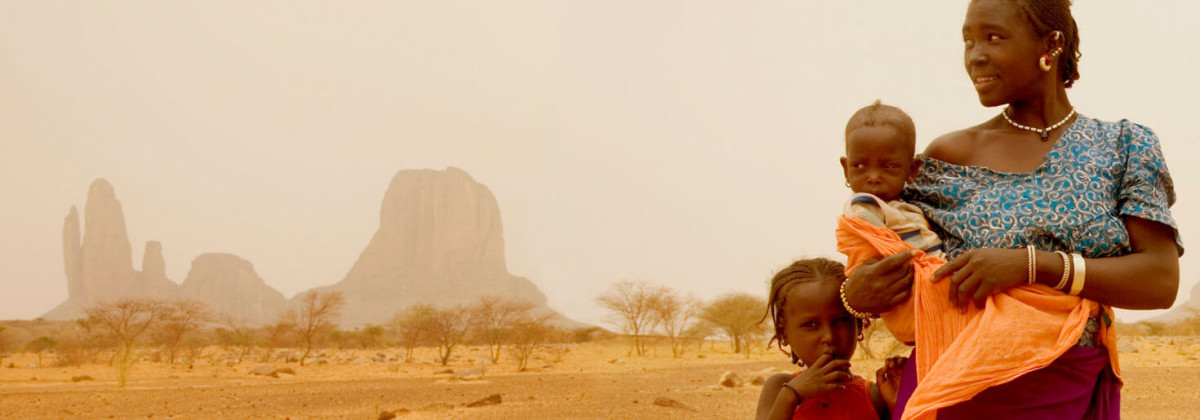Dear Supporters:
We are less than 3 weeks away from our exciting national action symposium, Women and Genocide in the 21st Century – and it promises to be an extraordinary event that you definitely do not want to miss.
· You will have a unique opportunity to meet a man of truth, the former head of the United Nations in Sudan and first-hand witness of the genocide attacks in Darfur, Dr. Mukesh Kapila. Dr. Kapila was the Special Advisor to the UN High Commissioner for Human Rights in Geneva and was also head of the UK Government’s Conflict and Humanitarian Affairs Department. In 2003, he was honored by Queen Elizabeth II and named a Commander of the Order of the British Empire for his international service. Driven by fury, he consciously and courageously ended his career/ability to work with both the UN and UK Government in order to bring light to the atrocities taking place in Darfur. His book, Against the Tide of Evil, provides an eye-opening, moving, thought-provoking, powerful, and passionate personal account of the Darfur genocide. He has recently joined the advisory board of DWAG. Watch an introduction and read about his extraordinary book at: www.mukeshkapila.org/book/about-book.html. We are honored to have him join us to share his own experience with genocide in Darfur.
· You will also meet Emmanuel Itier, a member of DWAG’s Board and director of the powerful documentary FEMME, Women Healing the World, which will be shown at the Symposium. An experienced feature film producer, Emmanuel Itier directed the thrillerTell Me No Lies (2000), the horror film Scarecrow (2002), and produced the film Wildflower (1999) in addition to a number of other pictures. He also directed the Peace documentary The Invocation narrated by Sharon Stone, which features Desmond Tutu, His Holiness The Dalai Lama, Deepak Chopra, and many other worldwide peace activists. We are very excited to hear him discuss why he became a women’s rights activist and how women can contribute to the betterment of our world despite being victimized. Watch the official trailer for FEMME, Women Healing the World at: http://www.youtube.com/watch?v=RjYopoPo55A.
· Hear the incredible story of El Fadel Arbab, a Darfuri genocide survivor, who was only 12 years old when he was exposed to the horror and tragedy that has befallen Darfur. You will also meet a group of wonderful high school students from Portland, Maine and see their outstanding art exhibit, ” The Beauty of Darfur and the Tragedy of Genocide” inspired by El Fadel’s story. Learn how the students were inspired by this extremely brave individual and how they are creatively turning his story into a beautiful work of art at:
http://www.wcsh6.com/video/default.aspx?bctid=1253347134001.
· Meet the Advocacy and Women’s Rights Specialist for the UN Action Against Sexual Violence in Conflict, Letitia Anderson. Ms. Anderson helps develop a comprehensive advocacy strategy to encourage the Security Council to address sexual violence as a matter of international peace and security and to ensure that sexual violence is considered an issue of high priority to the Human Rights Council. She is also building a partnership base for the “Stop Rape Now” campaign. Prior to joining the UN, Ms. Anderson worked as Policy Adviser on Women and War to the ICRC in Geneva and has undertaken field research in DRC, Liberia, and Rwanda, and is author of two reports on IHL published by the ICRC. We are honored to have her with us to address sexual violence in war zones and how it affects women and their entire communities and what needs to be done to immediately respond to emergencies in addition to long-term needs to enable them to overcome tragedy.
· Listen to the remarkable stories of women survivors from Rwanda, the Congo and Darfur. These stories will not focus on the aspect of women victimization and pain but on courage and resilience during their experiences of unimaginable suffering.
· Meet a diverse group of civil society leaders from various regions of Sudan, who will be articulating their vision and priorities for sustainable change in their home land.
· Contribute to the development of a strategy for sustainable change in Sudan and learn about DWAG’s unique approach to genocide prevention that will be utilized to end genocide not only in Sudan, but around the world.
· Help build the movement that will educate, engage, and empower the affected communities and enabling them to become strong forces in combating genocide.
· Meet with your Congressional Representatives and tell them what YOU care about and what THEY can do to help the suffering people of Sudan.
Come to the Symposium and leave with a wealth of knowledge that will help you as you advocate ending genocide in Sudan and around the world. We will be honored to have you join us and to work together toward ending genocide.
Join us for the Women & Genocide National Symposium 2013
On behalf of DWAG’s team:
Norrie Kurtz
Niemat Ahmadi
Dominique Perez
Brenda Tyler






